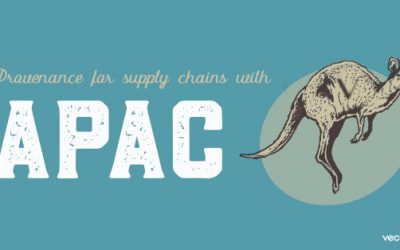This is an editorial by Ben Yorke. The opinions listed here are in response to the mass-reporting of a national Chinese digital currency from the People’s Bank of China (PBoC).
As much as it pains me to say this, China probably isn’t opening up to digital currencies. After the PBoC announced their digital currency was ready after 5 years of development, we’ve all seen the rumors floating around, and as usual, the media doesn’t know how to handle stories about China. Political and cultural complexities are once again oversimplified without considering the underlying implications. Here are a few things to take away from the announcement:
1. There will be nothing “public” about it.
For investors of VeChain, NEO, or any other China-based projects, this is going to be a tough pill to swallow. The world’s second largest economy isn’t going to trust their national currency to a blockchain startup. They will have a private chain, running on private nodes, that they have total control over.
2. China already has a digital currency.
There is no need for a national cryptocurrency from a public perspective. For all intents and purposes, the RMB has already been fully digitized thanks to Alipay and WeChat Pay. In 2018, China processed over 57 billion mobile transactions, a little more than 1800 per second. This number should continue to skyrocket as cash becomes more and more inconvenient to use. On a personal note, I’ve literally gone weeks without carrying or spending cash, nearly everything is conducted using QR Codes and WeChat.
For Beijing, the upside is that each of these transactions are tied to a WeChat or Alipay account, meaning personal identification numbers and bank accounts are all tied together. It’s impossible to have any sort of anonymity, a key reason Beijing is so supportive of this digital economy.
3. Control is the Name of the Game
The PBoC doesn’t want to make cross-border transactions easier. They don’t want to make it easier to buy and sell goods under the table. It’s not about increasing access to banking services. So what is the primary motivation here?
This announcement comes at a time when they are trying to limit their national banking system’s access to loans and shadow-banking. After the recent collapse of the Bank of Jinzhou and Baoshang Bank, the PBoC is on high-alert for more failing institutions. Low liquidity as well as abuse of interbank lending and wealth management products (WMPs) has ignited a concern that a financial crisis might be closer than Beijing had realized.
An interbank network could certainly help the PBoC control certain areas of banking activities. According to various news sources, the new digital currency would have a two-tier system with the PBoC at the top and commercial banks on the second tier. From Beijing’s perspective, this makes a lot more sense than an open-source, public blockchain such as Libra. Still, it’s not the kind of thing that ordinary people will come in contact with, or even need to know about.
Is this a response to Libra?
Certainly, everything China’s top economic policy-makers do has been evaluated from a geo-political angle. CoinTelegraph went for a more sensational spin by saying that “The PBoC has been planning to get ahead of the U.S. and Facebook’s Libra by issuing a national cryptocurrency, as American politicians slam the brakes on the social network’s stablecoin because of regulatory concerns.” While China’s state-run media might parade this as an example of innovation, Libra’s announcement came loaded with technical details, in the hope that they could begin implementing a revolutionary new infrastructure. China’s announcement came without any information, an indication that the title was more important than the actual details themselves. Don’t fool yourselves, China’s government (wisely) isn’t going to turn their financial system over to a public blockchain anytime soon. Still, the PBoC planning to use a blockchain for a national digital currency has a nice ring to it. In a world where most people only read the headlines, it seems like a smart move.










